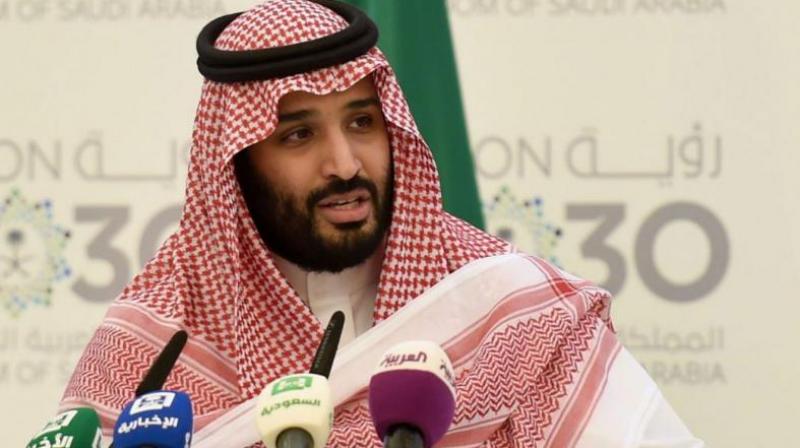View from Pakistan: Son rises as the Kingdom faces new challenges
Jugglers are fascinating to watch, employing as they do a mixture of dexterity, skill and showmanship.

Jugglers are fascinating to watch, employing as they do a mixture of dexterity, skill and showmanship. In keeping with the extreme times we live in, juggling balls is considered passé and practitioners of this art now toss around knives, swords, flaming swords, and even chainsaws in order to thrill and amaze their audience. But when an inexperienced performer is juggling not one, but five live hand grenades with the pins pulled out, the shouts of delight from the wa-tchers can all too quickly be replaced by screams of fear.
Right now that juggler is Saudi Crown Prince Mohammad Bin Salman (MBS), and the rest of us get to watch in amazement, tensing our limbs to be able to jump for cover in anticipation of the (inevitable?) fumble and subsequent BOOM. If that sounds pessimistic, it’s only because the magnitude of the challenges MBS is dealing with are such that any one challenge if taken in isolation would in itself tax even the most dynamic and flexible society to its limits. Saudi Arabia doesn’t quite fit that description.
Three of these challenges came into sharp focus recently, when the surprise resignation of Lebanese prime minister Saad Hariri was followed by a Houthi missile strike on Riyadh which was then followed by the Saudi version of the night of the long knives, in which scores, including highly prominent Saudis, were detained in what is being claimed is a move agai-nst corruption but is primarily a way to consolidate power. Dispensing with the tradition of rule by consensus and upsetting the system of balance that forms the bedrock of the Saudi power structure is in itself a radical move, but the driving force behind this is that MBS needs such absolute power to push his incredibly ambitious domestic and regional agendas. Domestically, MBS has announced that he will take Saudi Arabia towards moderate Islam in what is clearly a break from the past, and has presided over the lifting of the ban on women drivers.
While this is laudable, and carries with it significant risk of a backlash from conservative elements, it must be seen in conjunction with the other major domestic project he has undertaken: Saudi Arabia’s vision 2030. A grand plan aimed at reforming Saudi’s economy and weaning it away from what the crown prince himself calls its addiction to oil, it envisages job creation, private investment and has as its centrepiece the sale of a five per cent stake in Aramco. In addition, there are sweeping austerity measures on the cards and the phased removal of fuel, water and electricity subsidies have already begun. However, this comes at a time when the Saudi economy is not doing well thanks to low oil prices; the IMF predicts close to zero growth this year.
This is exacerbated by Saudi Arabia’s military spending, which exceeded Russia’s in 2015 to take over the third highest defence budget spot in 2015. Currently, Saudi ranks at number four, right after Russia and above India. Here is where the domestic links with the regional, as military expenditures cannot be reduced so long as the war in Yemen also causing a hum-anitarian disaster of immense proportions continues. Strategically, this move aims to isolate Hezbollah fr-om the Lebanese government and to highlight Iran’s expansionist role in the region, but just like the failed Qatar blockade (another brainchild of MBS) it is only likely to further exacerbate tensions and perhaps (intentionally) draw Israel into the fray. With the pronounced US tilt towards Riyadh once more evident, an alliance of convenience between these three powers may look good on paper, but will only further inflame an already volatile region. The stakes are higher than ever for Prince Salman and Saudi Arabia, and the ground is shifting beneath the juggler’s feet.
By arrangement with Dawn

